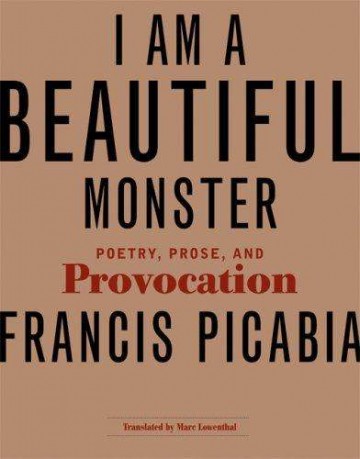
Originally published in the Marina Times San Francisco in October 2012
Picabia has destroyed “beauty” and built his work with the leftovers. —Tristan Tzara
A self-declared poet, painter, idiot, failure, pickpocket and anti-artist, Francis Picabia was one of the leading figures of the Dadaist movement. Now, almost fifty years after his death, The MIT Press has released the first English translation collection of his writings.
Beginning in Zurich in 1916, Dada’s beginnings as an anti-war statement against the senseless violence of World War I evolved into the first avant-garde art movement. Picabia’s art and writings were always a confrontation, a reaction against the unscrupulous bourgeoisie who lead Europe into war, a reaction against capitalism, the art establishment and the establishment in general. He deliberately slaughtered syntax and deconstructed linear meaning in an attempt to purify assumptions about writing, art and the meaning of existence.
Picabia was celebrated by other Dada and Surrealist personalities such as Marcel Duchamp, Tristan Tzara, and Andre Breton. Breton in particular was so appreciative of Picabia’s singular point of view, he said he wished he could consult him “… like a barometer on the atmospheric changes that took place overnight.” One of these atmospheric changes was automatic writing, a style which Picabia helped to popularize. Automatic writing is produced by the unconscious in a non-intellectual state of mind without deliberate linear intent. Such work is featured in this volume and reads like a nihilistic collage of confrontational imagery with whimsical turns of dark, anarchistic phrases.
The translator, Marc Lowenthal, states in the introduction “What the unconscious was to Surrealism, refusal was to Dada.” Refusal and negation are the worlds that Picabia populated with his painting and writing. The anti-establishment spirit of Dada produced many of the movements that followed including performance art, Pop art and the Fluxus movement through Post Modernism and beyond.
I am a beautiful monster
I have the sin of virtue for support.
My pollen stains the roses
from New York to Paris.
Francis Picabia pioneered these strange landscapes and left his work as a signpost for what was to follow. His writings are an exclusive glimpse into a noteworthy personality of the 20th century.